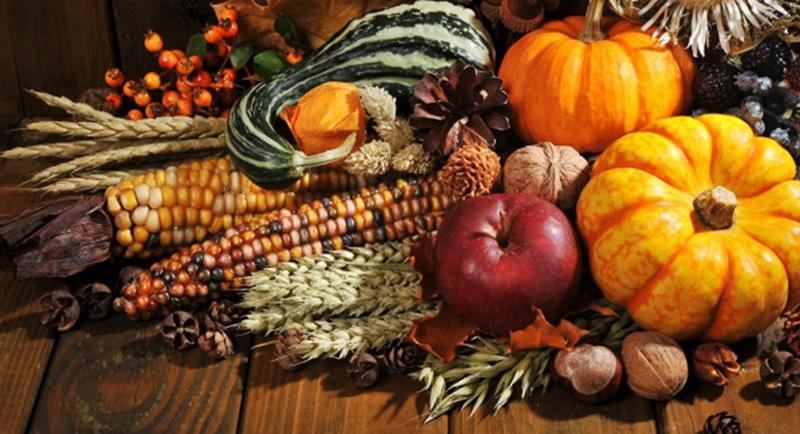...For He Is Good
...For He Is Good

Is there any reason for thanksgiving?
“Yes,” the one may say, “for I have made good progress during the past season, seeing fruit upon by labours. When I look back, I cannot but be thankful for all I have received.”
“I don't know,” another may reply, “for it seems as if everything I tried to undertake was a failure; I am worse off now than I was a year ago.”
It is customary to have a day on which we give special thanks to the Lord for all He gave during the past season.
The harvest is nearly finished in all regions of the country; now we look back, making up the balance, evaluating the progress we have made – if any – and we sit down to enjoy the fruits of our endeavours.
Is there real gratitude?
Is there contentment in our hearts?
When there is gratitude and when there is contentment, by what are these then brought about?
Are the depth of our gratitude and the measure of our contentment determined by the size and number of items we have received and by the percentage of growth of assets and bank account?
To everyone who listens to what lives among the people around us and who observes the actions and apparent goal of life with many of our fellow-citizens it is clear that there is little contentment and an astounding lack of happiness.
This is not strange at all.
True contentment is found only where life itself as well as all that is obtained in life is gratefully received and recognized as gifts from the God from whom all blessings flow.
True happiness is found only where the words of our Saviour are engraved in the hearts: “A man's life does not consist in the abundance of his possessions,” Luke 12:13.
True contentment and true happiness are found only where all things are seen and received as gifts from our God and not as the result of our own endeavour and skill, or as the benefits of “lots of good luck.”
What is the greatest of all gifts?
It is the life which we have received back through Jesus Christ our Lord.
Through and with Him we have further received all the treasures of God's rich creation.
Whatever comes to us is given us in His communion and as a fruit of His one sacrifice on the cross for us.
It is only when this is seen and acknowledged that there can be true happiness and contentment, for then it is seen and experienced that in even the smallest of all gifts the immeasureable love and kindness of our Father comes along. In His gifts – even the smallest – He gives Himself.
True happiness and contentment are found only where even the smallest proofs and tokens of God's love in Christ are cherished and enjoyed.

True gratitude is found only with those who acknowledge God's mercy in Christ as it appears in every aspect of life. They will acknowledge with profound conviction, “Come, see, and taste that the Lord is good.”
Their tables may not be loaded with roast turkey and cranberry sauce, with turnips and apple sauce, pumpkin pie and wine, yet they rejoice because they clearly see the light of God's grace shining upon their perhaps sparsely decorated table.
In what does a man's life consist?
Is it in having more today than last year?
Is it in having accumulated more assets during the past season?
Or is it in an abundance of goods?
All around us this appears to be the case indeed.
The leech has two daughters, we read in Scripture: they both bear the same name: “Give” and “Give.” Always more is demanded and desired.
That's why there is so little contentment and true happiness, even when the tables are loaded with roast turkey and all the trimmings supposed to come with it.
These things may be enjoyed, they are not cherished, for they are seen as a reward upon one's own achievements, not as gracious gifts from a reconciled God.
Once, after he had gained a decisive victory over his enemies, Oliver Cromwell wrote to a friend, “How shall we behave ourselves after such mercies?”
To ask this question is the beginning of true thanksgiving. To find the answer and to put in into practice is proof of true contentment.
It shows that one knows in what a man's life consists. And God's mercy endures forever.

Add new comment